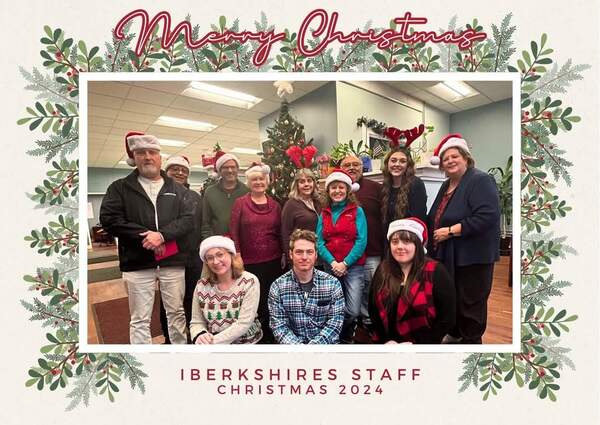NARH Ends Year In the Black
 |
| Richard T. Palmisano II |
The nonprofit health-care system ended the fiscal year in September with a balance of $325,000 just two years after struggling to treat a $4.5 million deficit.
"To go from $4.5 million to $325,000 in the black in a two-year period of time that's dramatic, in health care, in any industry, that's an incredible turnaround," said President and CEO Richard T. Palmisano II on Thursday. He cautioned that the pre-audit gain was small against the $78.4 million total taken in, but added "we had an excellent year, last year."
Palmisano was hired in 2006 to head the floundering the health-care system and its flagship North Adams Regional Hospital. Some of the organization's top management had resigned or had their positions eliminated and a health-care consultant group had been brought a year earlier to help solve its fiscal woes.
Palmisano credited a strategic plan implemented the year of his arrival that emphasized access to services, greater community involvement, measurable quality of care and responsible financial stewardship.
An increase in patients, which is expected to continue, cost-control efforts were significant factors in last year's profitability.
He stressed that the nurses, doctors and quality of care hadn't changed, rather that administrative systems had been put in place to respond more effectively to patient and market demands. The previous structure "had prevented the organization from realizing its potential."
"We're not out of the woods," Palmisano said of the dramatic turnaround. "We'll continue to have challenges going forward in terms of profitability."
Challenges Ahead
Those challenges include ensuring the hospital can survive without the $4 million its received over the past two years through the Essential Community Provider Trust Fund. The competitive state grants are designed to help medical organizations provide more effective and efficient community-based care.
While the hospital has become profitable, Sweetwood Retirement Community and Sweet Brook Care Centers had total losses last year nearing $1 million. Projected revenue growth for the coming year is pegged at .5 percent while costs are going up with rate of inflation.
The health care system is also struggling under pressure from insurers to make medical care more efficient and from the low-reimbursement rates from Medicaid that have bedeviled hospitals across the nation for years.
Commonwealth Care, created for low-income earners under the state's new health insurance reform, alleviates the burden of free care but only reimburses at about the same rate as Medicaid - 60 cents on the dollar.
Changes in Medicare, the federal insurer for the elderly, are expected to help academic medical centers but not small community hospitals, said Palmisano.
He cited the continuing need to be more efficient as one of the challenges in the coming year, along with the need to recruit more specialists and primary-care physicians to the area.
Doctors in the House
The hospital has 71 active physicians on staff but could use 13 more in a range of specialties. A high number of local physicians are above the age of 50 and nearing retirement so the hospital is trying to recruit ahead of the those departures.
<L2>"For every physician who retires we have to hire 1 1/2 to replace them," said Palmisano, because styles and expectations have changed. It has become difficult to find primary-care physicians who fit into the area's rural character, he said.
Doctors can nearly double their salaries by becoming specialists and more urban areas can far be more lucrative - a strong attraction for anyone carrying a $100,000 or more college loans. Family practitioners also "bear the brunt" of the demands of managed care.
"Economic incentives in health care are driving people away from primary care and yet it's the primary-care physician who's in the best position to integrate and coordinate care among specialists and to decrease the utilization of expensive specialist care," said Palmisano.
The health-care system has found a partner in McCann Technical School in developing nursing opportunities. The revived licensed practical nurse course is expected to provide a steady stream of employees over the coming years. Six recent graduates have already been hired and NBH is sponsoring the education of six more.
The hospital has gone through $22 million in renovations and construction in recent years, but that's not the end, said Palmisano. "We are continuing to look at what kind of facility enhancements need to be made here to provide the most efficient care."
More space is need for doctors' office space and specialty services, he said. "We are outlining a master facility plan to modernize and expand the physical plant here and in Williamstown and everywhere else."
Highpoints
Last year's successes included recruiting six physicians, including two new primary-care doctors; the installation of the most advanced and fastest computed tomography scanner in the area; completion of the digital radiography room (no more X-ray film); a digital archiving system expected to save thousands of dollars in film processing and storage costs; expanded cardiac coverage in partnership with Berkshire Medical Center in Pittsfield; and a pediatric palliative care program at Visiting Nurse Association and Hospice of Northern Berkshire.
The hospital reported an inpatient satisfaction rating of 92 percent and a similar high rating by patients in its short-stay unit.
The goal is to make the hospital as self-sufficient as possible by continuing along the strategic path laid out two years ago: increase patient growth, provide the physicians and care to serve the aging population and to provide that care more efficiently.
But that may difficult because of the current state of health-care financing; Palmisano described it as a "vicious cycle" in which the failure of public programs to pay the full freight puts more pressure on private providers.
The fear, he said, is that small businesses, which make up the bulk of employers in Berkshire County, may be forced to push their employees onto Commonwealth Care that will, in turn, mean higher premiums on larger employers to make up the difference. Hospitals, meanwhile, will be reimbursed at lower rates.
The attorney general's office has named a panel to examine how the new health insurance reform will affect acute care facilities - and it needs to start with how much medical care costs, said Palmisano.
"The problem with health care financing right now is that all of the approaches are piecemeal," he said, "instead of stepping back and saying,'to make the system work, how do we make it work?'
"If we change the model of how we finance health, if say, we went to a public model, we could level the playing field. I'm not advocating that necessarily, I'm just saying we really have to look at the system as a whole."















